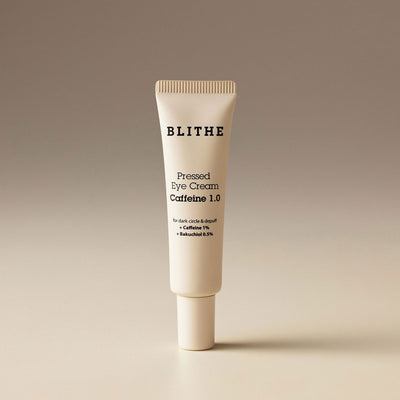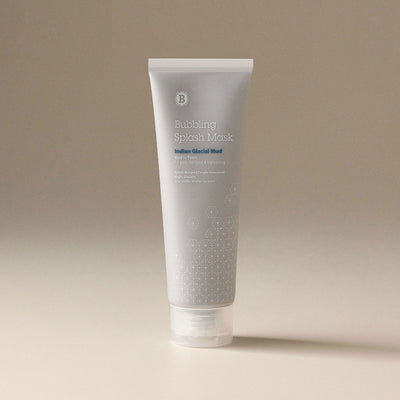This complex biological response serves as a protective mechanism against harmful stimuli in the body. Inflammation plays a significant role in various skin conditions that affect millions of people worldwide.
This article explores skin inflammation from a skin care enthusiast's perspective. It also explores ways to treat it through proper nutrition and supplements, both internally and externally.

Understanding Inflammation
Skin inflammation is a natural response of the body's immune system to injury, infection, or irritants. It often manifests as redness, swelling, pain, and heat in the affected area. Common external factors include
- Exposure to environmental pollutants
- The use of harsh skin care products
- UV radiation
- Exposure to allergens and irritants
Internal factors that contribute to inflammation include
- Genetic predisposition
- Hormonal imbalances
- Stress
- Poor diet and nutrition
Understanding these factors is crucial for developing effective treatment plans for our clients.

Treating Skin Inflammation Externally
To address skin inflammation externally, it is essential to establish a suitable skin care routine. This includes cleansing with mild, non-irritating cleansers that are appropriate for your specific skin type. It's crucial to avoid physical exfoliants on already inflamed or damaged skin, as they can further aggravate the condition. Instead, incorporate soothing and anti-inflammatory ingredients like bisabolol, allantoin, and aloe into the skin care routine.
When selecting products for inflamed skin, look for formulations that contain:
- Niacinamide: This ingredient helps strengthen the skin barrier and reduce inflammation.
- Centella Asiatica: Known for its wound-healing and anti-inflammatory properties.
- Green tea extract: Rich in antioxidants that can help calm irritated skin.
- Licorice root extract: Contains compounds that can help reduce redness and inflammation.

Treating Inflammation from Within
Addressing skin inflammation internally is equally important for achieving optimal results. Consuming anti-inflammatory foods can have a positive impact on your skin health. Omega-3 fatty acids found in fatty fish, walnuts, and flaxseeds are known for their anti-inflammatory properties.
Some omega-3 rich foods to recommend include
- Salmon
- Mackerel
- Sardines
- Chia seeds
- Hemp seeds
Brightly colored fruits and vegetables richy in antioxidants can also help reduce inflammation. Some examples include
- Berries (blueberries, strawberries, raspberries)
- Leafy greens (spinach, kale, collard greens)
- Bell peppers
- Sweet potatoes
- Tomatoes

Additionally, incorporating turmeric, ginger, and garlic, which have natural anti-inflammatory properties, into the diet can be beneficial. These can be easily added to various dishes or consumed as teas or supplements.
Supplements can also play a role in addressing this prob. Fish oil and probiotics can improve skin health by reducing inflammation and supporting gut health. Vitamin C and E, known for their antioxidant properties, can also be beneficial in alleviating inflammation.
When recommending supplements, it's important to consider the following
1. Quality : Advise clients to choose high-quality supplements from reputable brands.
2. Dosage : Provide guidance on appropriate dosages based on individual needs.
3. Potential interactions : Before starting any new supplements, talk to your doctor, especially if you are taking medications.

Lifestyle Factors in Managing Inflammation
In addition to skincare and nutrition, lifestyle factors play a crucial role in managing inflammation
- Stress management: Chronic stress can exacerbate inflammation. Encourage clients to practice stress-reduction techniques such as meditation, yoga, or deep breathing exercises.
- Sleep: Adequate sleep is essential for skin repair and overall health. Aim for 7-9 hours of quality sleep each night.
- Exercise: Regular physical activity can help reduce inflammation in the body. Exercise for at least 30 minutes a day, 5 days a week.
- Hydration: Proper hydration is crucial for maintaining healthy skin and reducing inflammation. Drink plenty of water throughout the day.
- Avoiding triggers: Identify and avoid personal triggers that may cause skin inflammation, such as certain foods, environmental factors, or specific skincare products.

By taking a holistic approach that addresses both external and internal factors, you can achieve healthier, less inflamed skin. This comprehensive strategy includes developing personalized skincare routines, taking appropriate nutrition and supplements, and considering lifestyle factors that influence skin health.
With patience, persistence, and a well-rounded approach, you can overcome the challenges of skin inflammation and achieve healthy, radiant skin you desire.
As an skin care enthusiast, understanding the role of inflammation in skin conditions is crucial for taking on effective treatment measures. By addressing skin inflammation, both externally through a customized skin care routine, and internally through a balanced diet and nutritional supplements, it is possible to alleviate inflammation to promote healthier, calmer skin.
This approach involves using gentle, non-irritating products with soothing ingredients, protecting the skin from further damage, and encouraging a diet rich in anti-inflammatory foods and supplements. Additionally, lifestyle factors such as stress management, adequate sleep, and regular exercise play a significant role in managing inflammation and improving overall skin health.









Leave a comment